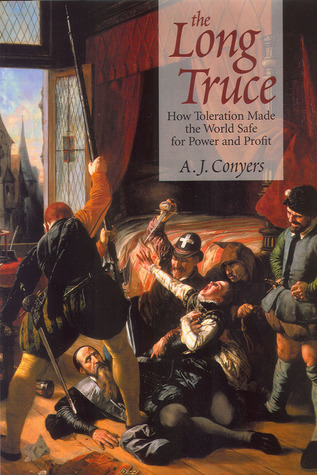Toleration in public life, the agreement to disagree peaceably, is one of the great achievements of Western man. Toleration can sometimes be found in static societies, but in dynamic societies, it is rare—save for a few recent centuries of European civilization.
The disaster of the 17th-century religious wars and—even more, perhaps—the discovery of the practical benefits of an empirical attitude toward truth generated a certain openness, a willingness to live and let live in matters of faith. Nonetheless, the happy era of toleration ended in the unprecedented totalitarian regimes of the century just past. And in the century now beginning, the so-called liberal democracies seem to be descending into the enforced groupthink that has been labeled “political correctness.”
Dr. Conyers, a professor at the Baylor University Theological Seminary, wants to know how we got from there to here. His account is an erudite but readable tour of political thought from Hobbes to the present. To oversimplify a very nuanced argument, Dr. Conyers shows how toleration became, in the modern nation-state, essentially an indifference to all values except political power and material prosperity.
Far from liberating the individual from government, toleration liberated the individual from every bond and obligation except the state—a state now without any values except its own will to power. The loosened individual has become not a free man but a cipher in an inarticulate mass society, which has so far remained livable only by virtue of residues of its civilizational founding and Christian patrimony. “Liberation” becomes the pretty mask to hide elitist power. Emerson perfectly expressed it in the poisonous deceit of his Harvard Divinity School address: “Build therefore your own world, a correspondent revolution in things will attend the spirit. So fast will disagreeable appearances, swine, snakes, pests, madhouses, prisons vanish . . . until evil is no more seen.”
“To learn where we have begun to drift off course is not to regret the entire journey,” writes Dr. Convers. “Distance, nevertheless, gives us perspective.” There is a fundamental question raised by the course of modernity, he argues: How long can society maintain itself on residues? “How long can it pretend that the character and virtue of a people, that which makes social life commodious and predictable, can simply be taken for granted?” Will we continue on the perilous path of “a form of toleration that, in effect, tolerates nothing except the individual and the state, giving free reign to the egotistical forces at either end of the spectrum?”
I have summarized a work that deserves thoughtful and extended reading and that is as relevant to our moment as the sunrise. The Long Truce goes on my best shelf with other valued friends of contemplation—Richard M. Weaver’s Ideas Have Consequences, Betrand de Jouvenels On Power, Donald Livingston’s Philosophical Melancholy and Delerium, and Eric Voegelin’s New Science of Politics.
[The Long Truce: How Toleration Made the World Safe for Power and Profit, by A.J. Conyers (Dallas: Spence Publishing Company) 266 pp., $27.95]

Leave a Reply